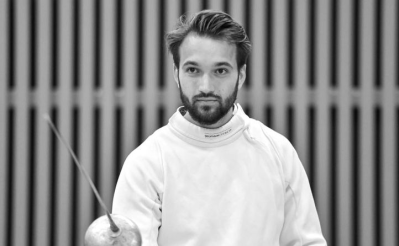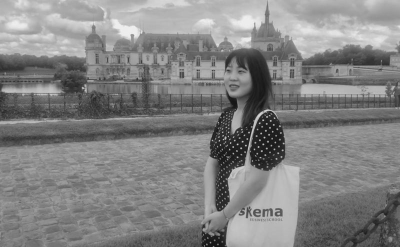News
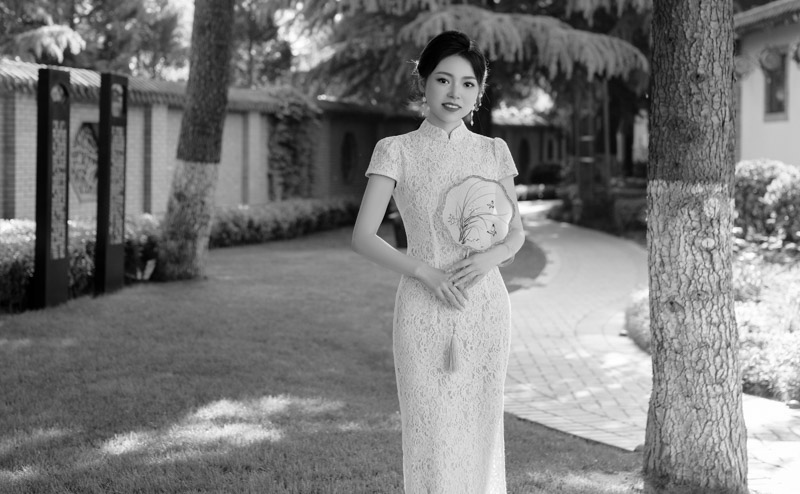
Yueming Zhang (SKEMA 2017): "It's important for me to combine tradition and modernity".
Yueming Zhang (SKEMA 2017), an alumna of the MSc in Auditing, Management Accounting & Information Systems at SKEMA Business School, has embarked on a unique journey from Suzhou, China, to the Grand Paris campus in an electric car. Her mission? To promote the traditional Suzhou embroidery while supporting women with disabilities, all in the spirit of sustainability.
Yueming, you’ve recently undertaken a journey along the famous Silk Road, from Suzhou to Paris, to promote Suzhou embroidery and support women with disabilities. What inspired this adventure?
I wanted to retrace the Silk Road in my own way, by linking it with an art form close to my heart: Suzhou embroidery. This art is part of China’s intangible cultural heritage, and this journey was a way for me to reconnect people through art and cultural heritage. This project also serves to raise awareness of social issues. I support disabled women who keep this craft alive.
You travelled through more than 20 countries, and your journey was a real adventure. Could you tell us more about your decision to connect Suzhou and Paris using an electric car?
The journey from Suzhou to Paris is symbolic. It retraces part of the cultural history connecting the East and the West, but it also reflects my commitment to sustainable development. I chose to use an electric car to minimise my carbon footprint throughout the journey. It was important for me to blend tradition with modernity and prove that it’s possible to respect heritage while considering environmental concerns.
You founded your brand, Yasong, which has been very successful in China. How have you incorporated traditional elements like embroidery into a more modern approach?
When I returned to China after my studies in France, I discovered that Suzhou embroidery was mainly practised by older generations, and young people showed little interest. During my time in France, I visited many museums and exhibitions, which showed me that art can be accessible to everyone. I wanted to refresh this tradition by creating a modern brand that resonates with younger generations, particularly through social media platforms like Douyin (TikTok in China). Today, I regularly host live streams to share the history and techniques of this art, to educate and engage a younger audience.
Your commitment goes beyond cultural promotion; you also help women with disabilities. How does this charitable aspect fit into your project?
The art of embroidery is a valuable skill, but it can also be a means of empowerment for women facing difficulties. When I arrive in Paris, I plan to organise livestream sales, with part of the proceeds going to professional training programmes for these women. The goal is to give them the tools they need to thrive and support themselves through their craft.
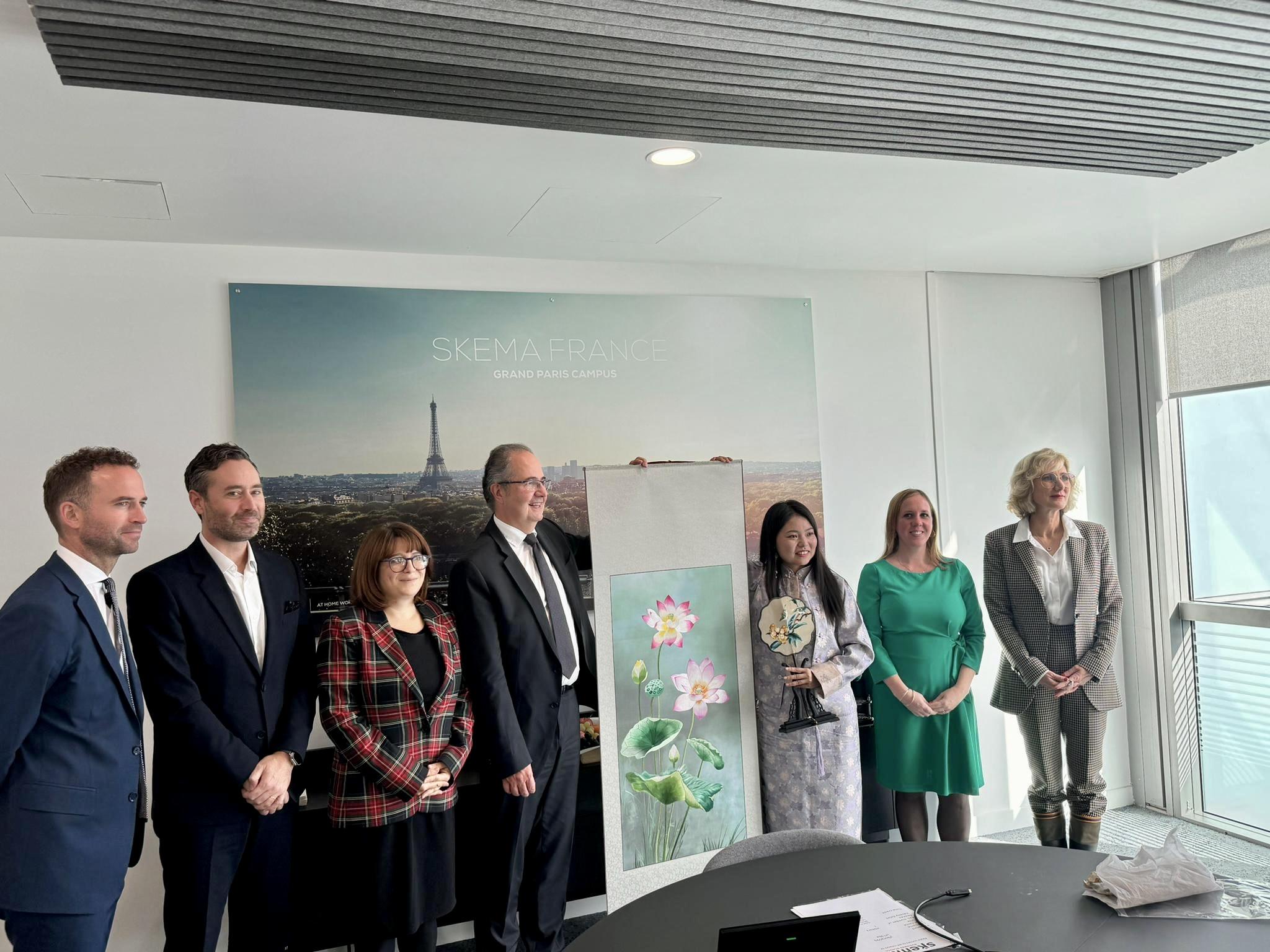
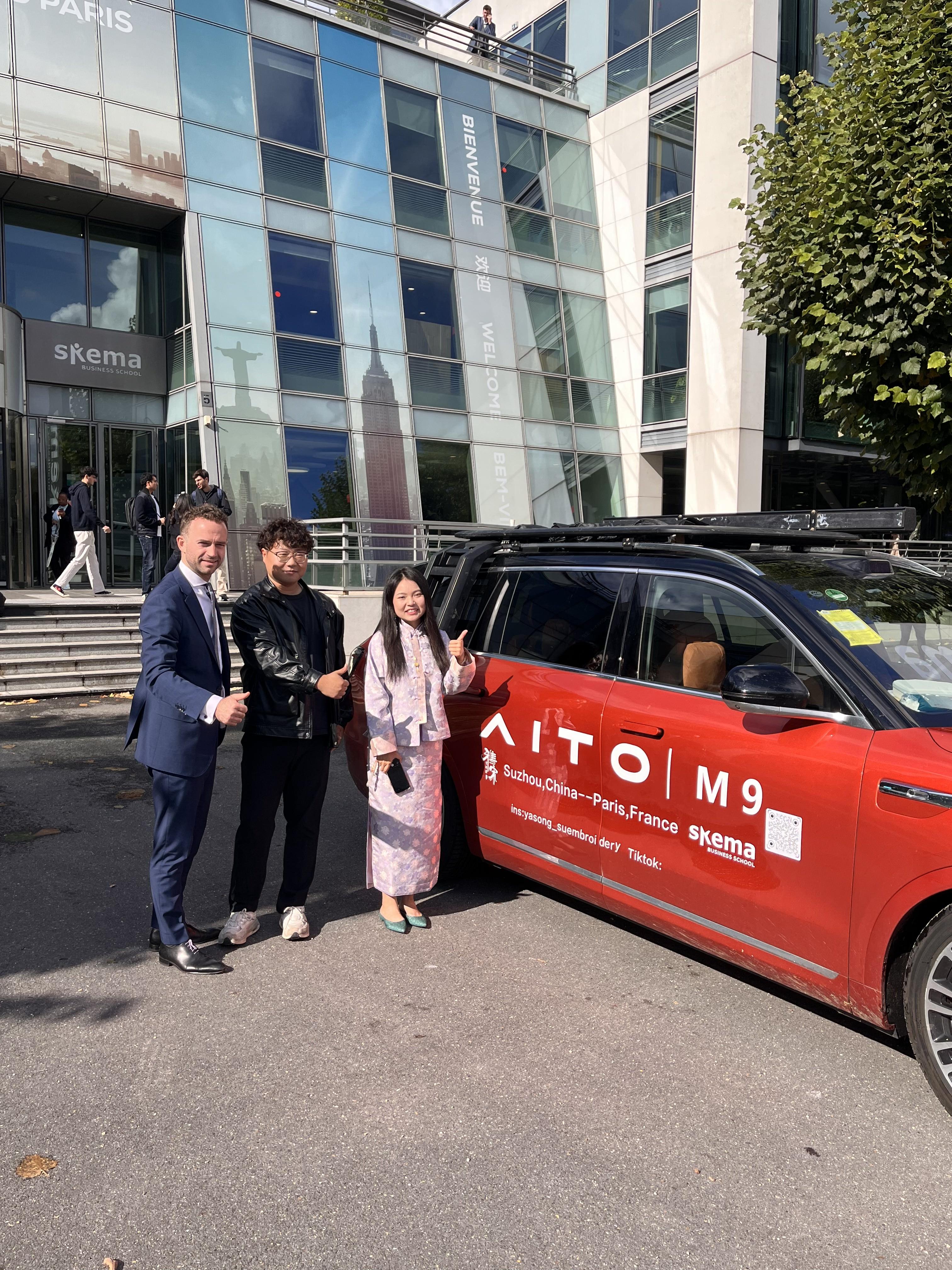
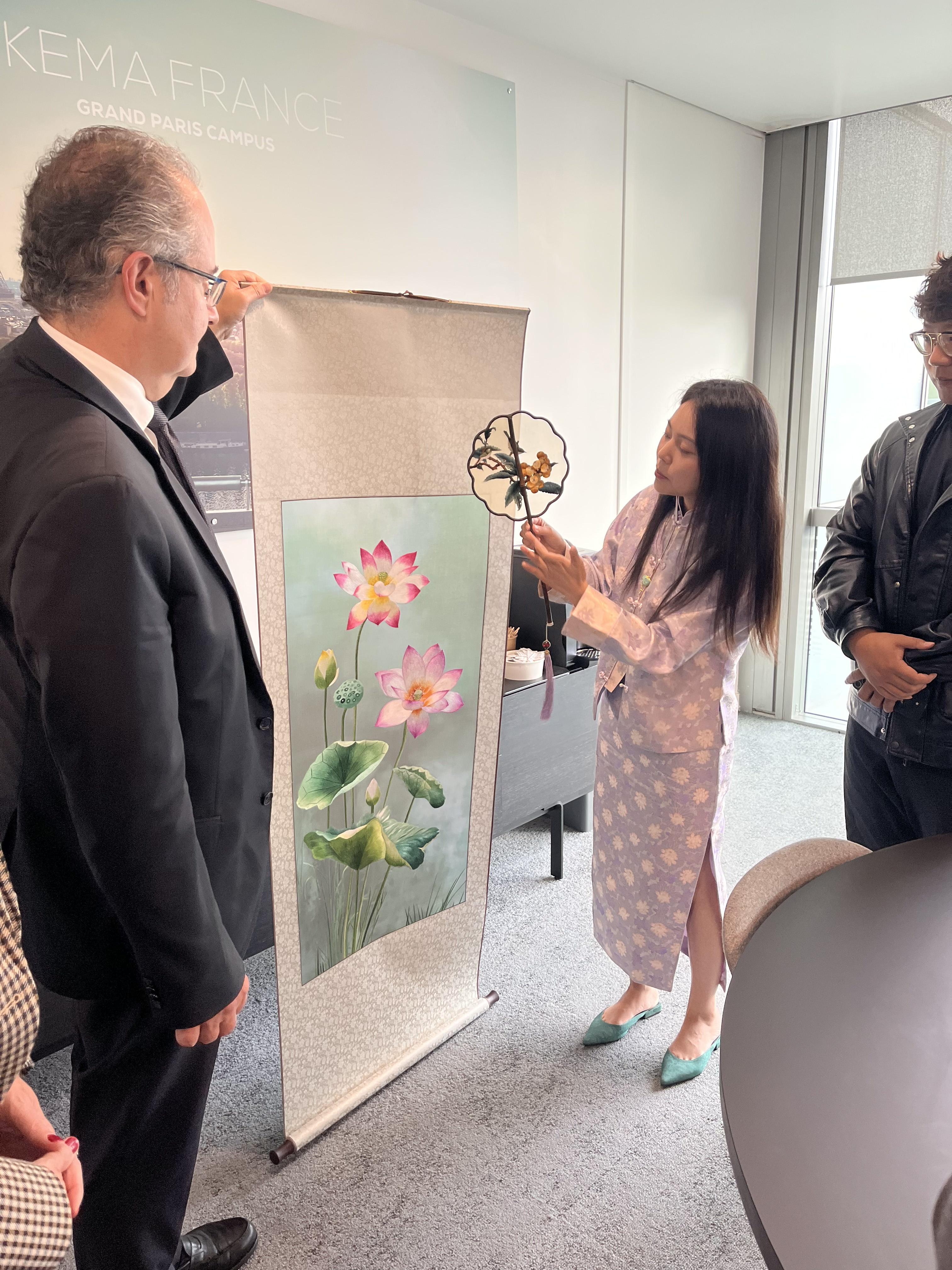
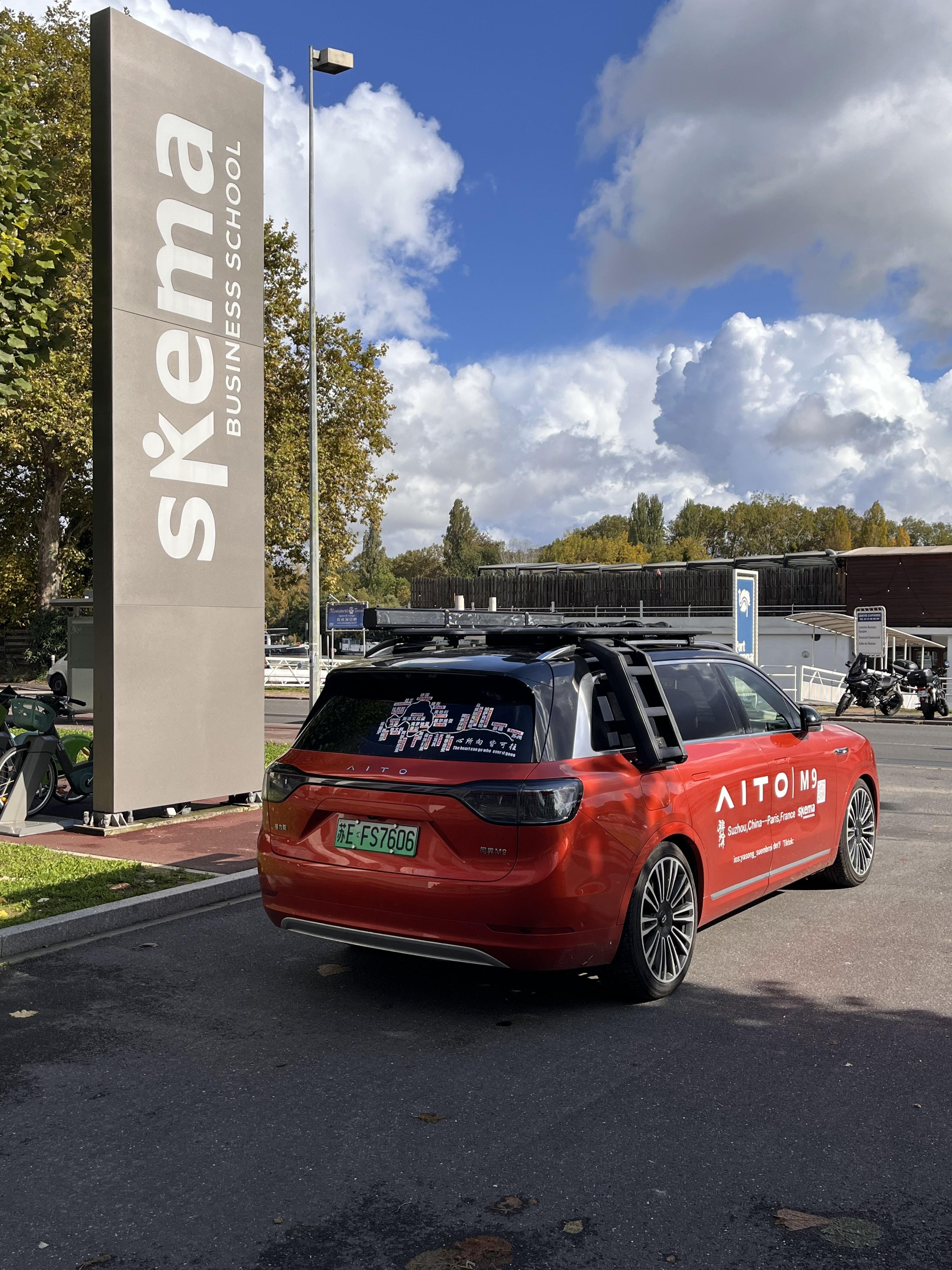
Your project seems to encompass cultural, social, and environmental dimensions. Do you think this type of initiative can inspire other entrepreneurs?
I truly hope so! Today, we live in a world where it’s vital to think about the impact our actions have on the world. I want to show that it’s possible to preserve our heritage while committing to ethical and sustainable practices. As entrepreneurs, we have a responsibility to future generations, and I firmly believe that innovation can go hand-in-hand with respect for our traditions.
What are your next goals after this adventure?
I want to continue developing Yasong and explore new ways of integrating other forms of intangible heritage into my designs. But more importantly, I want to keep supporting initiatives that allow women to acquire new skills and become more independent. I dream of seeing Suzhou embroidery spread across the world, while supporting those who keep it alive.
Interview conducted by SKEMA Business School



